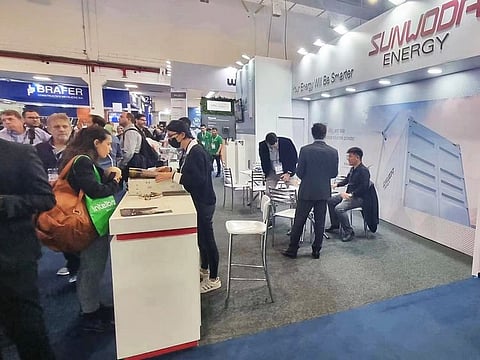China's EV startups defy funding slump with $6 billion
Auto sector takes the top spot for funding so far this year

China's electric vehicle startups are defying the venture capital winter.
While the country is leading a global contraction in VC investment, its auto sector has taken the top spot for funding so far this year, with more than 147 deals amounting to $5.95 billion, according to data from research firm Preqin.
Much of that has been from capital flowing into EVs, with batteries and semiconductors — two other high-growth sectors in the new-energy vehicle chain — in fourth and fifth place.
All three have logged more deals than last year, while fundraising for once-hot industries like internet businesses, education and real estate have fallen off a cliff.
Biggest deals
The biggest deals this year include Changjiang Capital's $1.57 billion bet on a high-end electric car startup founded by Renault China CEO Soh Weiming, and a $1.17 billion Series A round for Sunwoda's EV battery unit, driven by investors including Shenzhen Capital Group and National Green Development Fund Management, according to Preqin.
"Pretty much the only market that's doing extremely well is the EV market," said Jochen Siebert, managing director at JSC Automotive. "For now it's the last game in town you can play." Behind the boom: ample state support, not just through tax breaks and cheap loans but also through capital investment.
EV brands of legacy automakers like GAC's Aion, SAIC's IM Motors and Dongfeng's Voyah have also each bagged hundreds of millions of funding.
Local upstart Hozon Auto, which targets rural areas and smaller cities with more affordable electric cars, raised over 3 billion yuan ($420 million) in a Series D round in July as it eyes an initial public offering in Hong Kong.
Bouyant sector
The sector has remained buoyant because the retreat in foreign venture dollars and global investors has been offset by provincial and municipal governments taking minority stakes in EV companies, often through city-financed investment funds instead of direct holdings.
Take the country's five largest EV startups, which collectively sold 465,300 cars from January to September 2022 "- all have local governments as minority investors, according to corporate records.
Changjiang Capital and Shenzhen Capital Group, the names behind some of the biggest deals this year, are funds financed by the Hubei and Shenzhen governments respectively.
State-owned enterprises like Shanghai Electric Group and local governments like Changzhou also backed the two major EV-related IPOs recently: Leapmotor and CALB.
Their aspiration? To replicate the success of Hefei, a city in eastern China, whose 17% stake in Nio made a return of up to 5.5 times its investment.
"Not investing in the electric vehicle value chain right now is like not buying a house twenty years ago," Ren Zeping, a former economist at the Development Research Center that's overseen by China's cabinet, told an investment conference in Changzhou at the end of last year. "It's the opportunity of a century," Ren told the delegates, who included top Communist Party officials in the city and CALB's chief executive.
Yet, while more EV-related deals have been struck this year, their overall value has declined slightly despite a few blockbuster rounds, and JSC's Siebert warns that funding could get tougher as economic realities bite.
"There's enough money for now in China but this will dry up very soon because China is going into a balance-sheet recession," he said. "It can still be profitable, but only for now."



